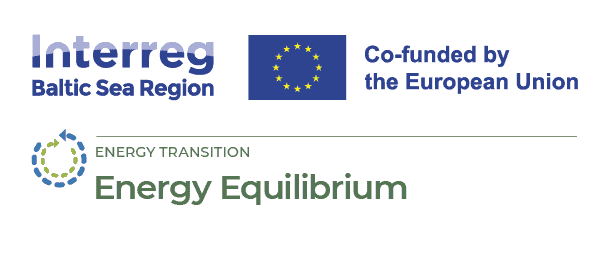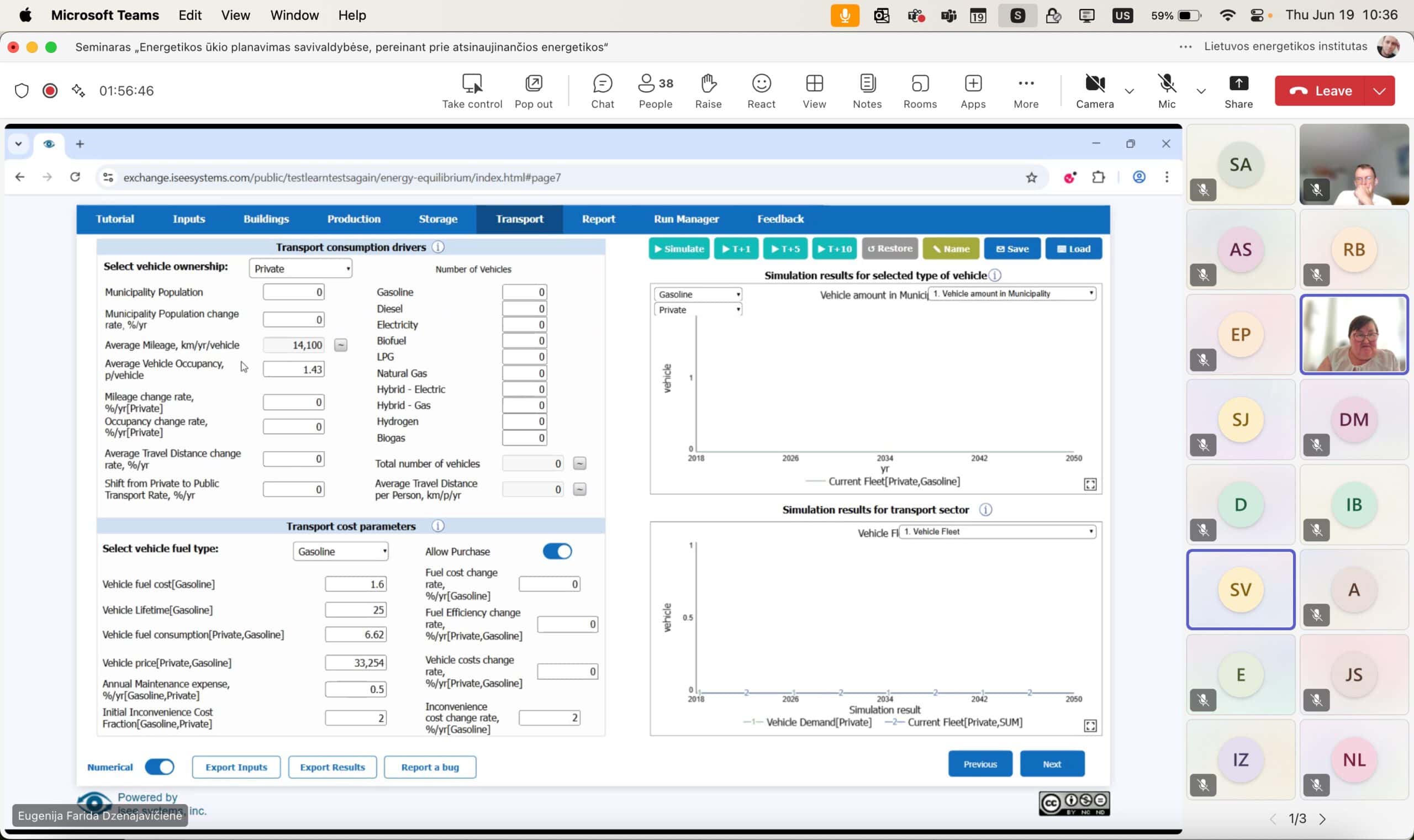
Energy Equilibrium seminar in Lithuania — Energy Accumulation for municipal energy sector
25 June 2025
With the support of Association of Local Authorities in Lithuania the seminar “Energy sector planning in municipalities for the transition to renewable energy“ was arranged by Lithuanian Energy Institute for Lithuania’s municipalities on June 19, 2025. The seminar was an online event with 48 participants, mainly from 37 municipalities and 16 education and research institutions.
Seminar Highlights
After the presentation of the Energy Equilibrium project four main presentations were made, two of which were made by invited guests from Kaunas University of Technology and provided comprehensive and informative information on the following topics:
- Efficient use of renewable energy sources in public and multi-apartment buildings (dr. Rokas Valančius, KTU); and
- Energy storage, technologies in use (dr. Egidijus Puida, KTU).
The presentation on Energy Equilibrium platform – the developed system dynamics simulation tool for renewable energy infrastructure planning – with comprehensive description as well as demonstration of the tool, it‘s options and possibilities – was made by project partner.
Upon request from the participants of the seminar the presentation were sent together with the User Manual and Roadmap for renewable energy transition in BSR municipalities.
Besides sending the invitations directly to municipalities, which are our target audience, the seminar was also announced on LEI website (all links in Lithuanian).
The short presentation of the seminar was also presented on LEI website.
The recording of the seminar is available.
This article was prepared and published by Eugenija Farida Dzenajavičienė.
© Photo by Maksim Shutov on Unsplash






